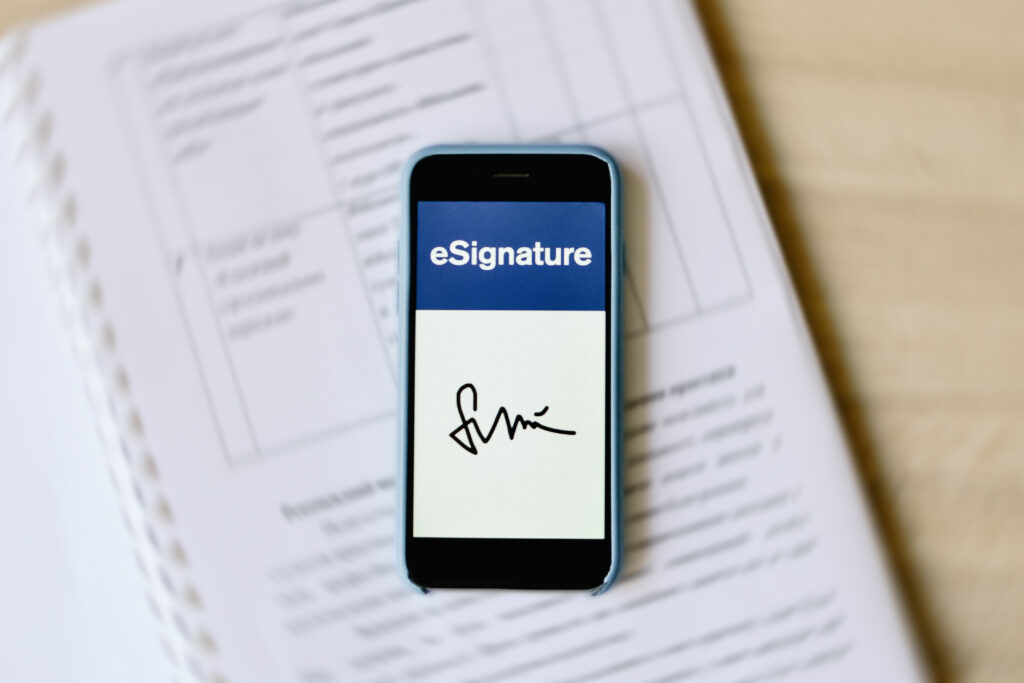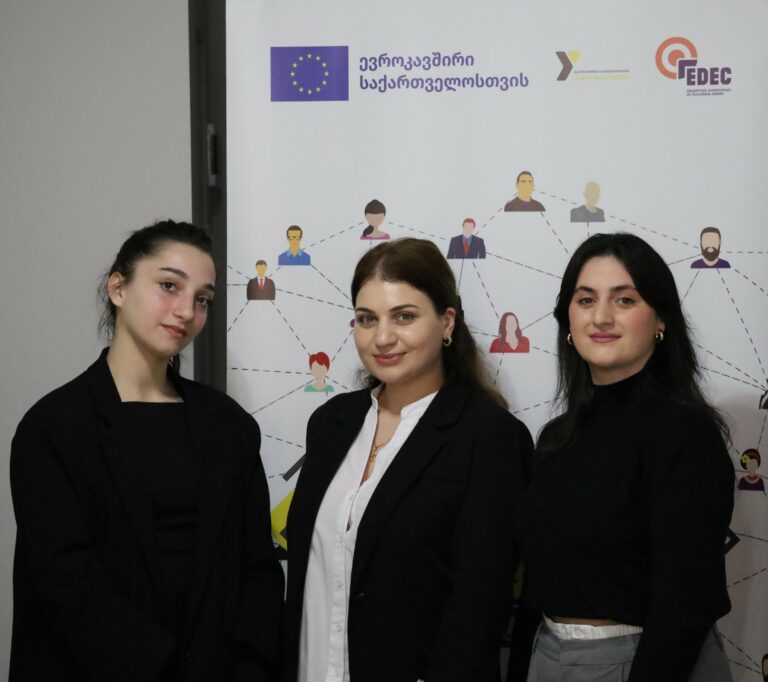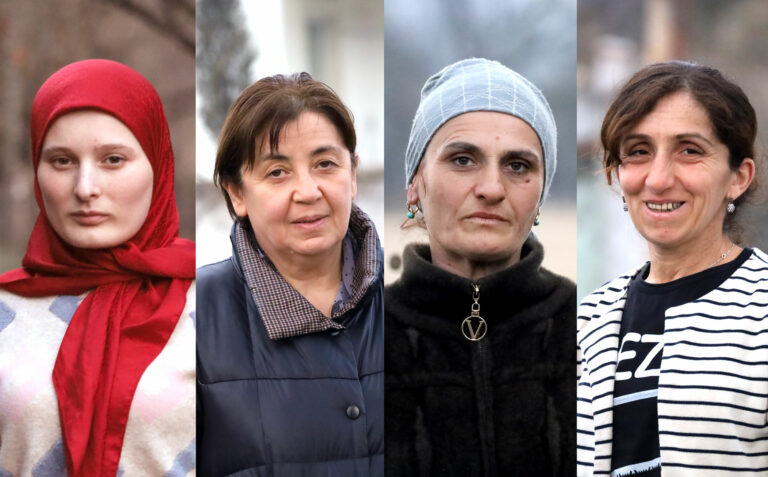
eSignature: a key step connecting Georgia with the EU
Imagine that you own a small business and spend hours every week signing documents. Wouldn’t it be easier if you knew that you could sign the documents electronically, at any time, from any part of the world, using an electronic ID that can automatically be recognised as carrying legal force by other parties?
In our modern 21st century, where everything from trade to public services has gone digital, the issue of trust in the online space is very important. Which source of information, which documents can we trust? How can we verify this? A qualified electronic signature (eSignature) is a solution that enables individuals to sign documents remotely. An eSignature guarantees the authenticity of a document, can be valid across country borders, and helps people save time while strengthening online trust and security.
eSignature and other digital trust services contribute as fundamental blocks of the international digital economy. In the European Union, the eIDAS Regulation establishes a single framework for electronic identification (eID) and eSignatures in the 27 EU Member States. However, the technological, organisational and legislative frameworks differ among the Eastern partner countries and from the EU. These differences mean that the digital solutions are not necessarily able to interact seamlessly across borders.
To make an electronic signature trustworthy across borders, the European Union’s EU4Digital Facility has implemented a cross-border eSignature pilot. This pilot tested the operation of cross-border eSignature between the Eastern partner countries of Moldova and Ukraine, and EU country Estonia, in order to test the solution cross-border and identify existing regulatory and technical gaps and obstacles. The pilot also provides the opportunity to lay the foundations for wider uptake in the Eastern Partnership region, and for the other Eastern partner countries of Armenia, Azerbaijan, Belarus and Georgia to take the lessons learned and increase their readiness towards mutual recognition of trust services between them and with the EU in the future.
“The development of eCommerce is key to gradually develop the digital economy in Georgia,” says Nino Samvelidze, Programme Manager for Youth, Culture and Digital Society at the Delegation of the European Union to Georgia. “This pilot plays an important role to raise awareness among the potential beneficiaries and to demonstrate its impact on businesses and citizens. We hope that the policy and regulatory framework of eCommerce will be further strengthened in the country and we are ready to further support Georgian citizens to be more connected to the European Digital Market.”
How does eSignature simplify everyday life?
eSignature substantially simplifies activities, as it allows documents to be signed remotely, thus eliminating the need for travel or sending paper documents. In addition, the document includes a date stamp, and whenever it is changed, the appropriate record appears with information about the validity of the document. In the future, it will also become possible to sign electronically using mobile phones.
“eSignature provides far more benefits, apart from high level security of data. It allows to exclude document forgery, and above all, it saves time and resources,” says Eka Gordadze, Senior Manager of the digital governance and cybersecurity strategic direction of Georgia’s Digital Governance Agency.
To sign a document, citizens and legal persons will only need to buy a special reader, install a program and learn just a few operations. Eka Gordadze says it is important to continue an active communication campaign to inform citizens and businesses, and to further raising awareness of the benefits of eSignature. “People often argue that it does not simplify our lives as it needs additional devices and programs but it is important to understand that with qualified eSignatures, our legal environment and relationships become safe,” explains Gordadze.
Where are we now with eSignature recognition across-borders in Georgia?
“Our legislation is compatible with the eIDAS Regulation but there are other technical and procedural issues that need to be improved to be fully compatible with the Eastern partner countries and the EU. Then we will be able to mutually recognise eSignatures [across borders],” says Gordadze.
She added that at the first stage of the EU4Digital Facility project, an assessment was conducted in each Eastern partner country to establish the maturity levels of digital trust and electronic identification services for mutual recognition.
Giorgi Jijeishvili, Director of Administration Department of the Public Service Development Agency, said the Eastern partners had been working with the EU’s ‘MRA Cook-Book’ for supporting third countries towards a Mutual Recognition Agreement, including guidelines for self-assessment and implementation of necessary changes.

The final goal of the project is to increase the readiness for cross-border mutual recognition of eSignatures. As Jijeishvili explains, the aim is that “when you will sign with the ID card, it will be recognised by the EU countries and given legal force. This will be a very important step – probably second only after visa liberalisation – bringing us closer to the EU. Without this initiative, we would have great difficulties in developing eSignatures [compatible with EU requirements], as the process depends not only on political will but on the technical side as well. The project encourages both directions.”
Trust and security framework in Georgia
Gordadze says the country approved a law on trustable electronic services in 2017, which regulates the use of eSignatures and stamps. Relevant work began in spring 2018, including a national awareness raising campaign.
“With the help of donors, we managed to distribute the readers to people in the regions. With information, visual aids, meetings, trainings, and other means, we did our best to raise awareness in the regions, and to share information about the unified electronic service portal (my.gov.ge). As for the legal side, during the Trust and Security group meetings, EU representatives and other parties underlined that the legal framework – the law of Georgia on Electronic Documents and Trustable Electronic Service – is in fact fully compatible with the European regulation,” said Gordadze.
How are eSignatures and cybersecurity related?
The Digital Governance Agency highlights that with the explosion of digital technology during the pandemic, cyber hygiene has become a necessity of everyday life.
“Qualified eSignature establishes high standards of security. Thus, it is directly related to cybersecurity and excludes the risks of fraud. For the eSignature to be secure, the standards and requirements should be met by the organisation issuing the relevant [digital] certificate – the State Service Development Agency,” says Dimitry Gugunava, manager of digital governance and cybersecurity strategic direction at the Digital Governance Agency.
Vladimer Sichinava, Director of IT and systems department of the State Service Development Agency, adds they are guided by European standards for the provision of secure services. To meet these standards, the Agency is audited by an independent organisation.
“We fully comply with the European standards. For example, based on the requirement of this standard, the Agency undergoes permeability testing in the form of a mock cyberattack. The staff are trained in information security issues. As a result, the qualified eSignature becomes the highest level secure transaction in the digital space,” said Sichinava.
The EU4Digital Facility pilots in digital trust services aim to prove that in a contemporary 21st century society there are processes, tools and technologies that can enable countries to recognise each other’s digital trust services, thus enabling and growing the digital economy opportunities between them. The EU4Digital Facility is looking forward to extending eSignature pilots to other Eastern partner countries.
By developing trust and security in the digital economy, the EU simplifies electronic transactions that businesses and citizens need, makes them more secure, faster and cheaper, and supports resilience of the most important digital infrastructure in sectors such as telecommunication, energy, transport and banking. This results in a stronger, more dynamic economy and increased consumer trust.
Find out more about the cross-border eSignature pilots and the EU4Digital Initiative.
Author: Iana Kokhodze
Article published in Georgian on On.ge
MOST READ
SEE ALSO

No, time is not on Russia‘s side

A hands-on approach to boost youth employment in Georgia

Taking health into their own hands: women’s empowerment in the remote villages of Georgia

A woman publisher in a male-dominated industry – the path to a big dream

Be one step ahead of a hacker: check simple cybersecurity tips!
More campaign pages:
Interested in the latest news and opportunities?
This website is managed by the EU-funded Regional Communication Programme for the Eastern Neighbourhood ('EU NEIGHBOURS east’), which complements and supports the communication of the Delegations of the European Union in the Eastern partner countries, and works under the guidance of the European Commission’s Directorate-General for Neighbourhood Policy and Enlargement Negotiations, and the European External Action Service. EU NEIGHBOURS east is implemented by a GOPA PACE-led consortium. It is part of the larger Neighbourhood Communication Programme (2020-2024) for the EU's Eastern and Southern Neighbourhood, which also includes 'EU NEIGHBOURS south’ project that runs the EU Neighbours portal.

The information on this site is subject to a Disclaimer and Protection of personal data. © European Union,







